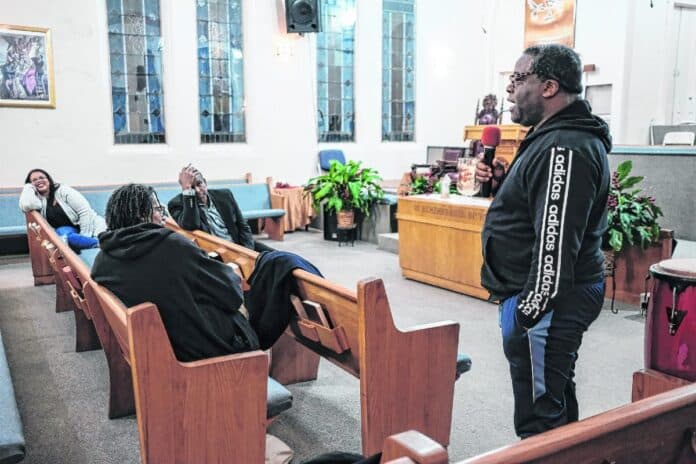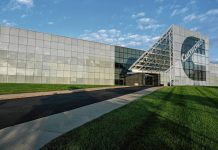
Before a Rev. Martin Luther King Jr. Day town hall meeting on challenges in Columbus’ African American Community could begin Monday, the Rev. Frank Griffin realized that one issue to be tackled was unfolding before his eyes.
He wanted those assembled at Calvary Community Church downtown to tell him why a smaller number of African Americans participate in area events and programs — especially those gatherings organized especially for them.
As Griffin, a member of the African American Pastors Alliance, opened the meeting, 14 people were in attendance at a building that houses a faith group with healthy numbers for everything from worship services to outreaches.
“But this is even higher than I expected,” Griffin told them, before the group later grew to 24 people on hand.
[sc:text-divider text-divider-title=”Story continues below gallery” ]Click here to purchase photos from this gallery
They included new Columbus Police Department Chief Mike Richardson, local Democratic party leaders Bob and Cate Hyatt, Columbus/Bartholomew County Area NAACP President Olisa Humes, new city council member Jerone Wood, Lori Thompson with the local African American Fund and others.
Griffin was careful to say he is hardly a pessimist. Such measured participation is simply what he has seen while a member of the alliance that organized the town hall gathering with the Columbus/Bartholomew County Area NAACP Branch to get input on three areas of concern: Community participation, youth challenges, and determining the biggest area for improvement.
Attendee James Harris said he believes many in the community may be like him — getting local news and tidbits about events from social media rather than newspapers and related sources.
“We’ve got to find a better channel of communication,” Griffin said.
“A lot of times, I think many people don’t feel events are relevant to them,” Humes said.
Thompson said there are related issues.
“We as black people sometimes think that everything is OK — that there are not issues to be dealt with,” Thompson said. “But, in fact, there are (issues).”
On youth challenges, Griffin mentioned that the pastors group has had concerns for some time about a decreasing number of local African American youth participating in sports.
Attendee Deborah Booker told of the recent experience of a grandson who earned a college football scholarship in another state. She said his white teammates immediately let him know that he never would be fully accepted.
“So sometimes they do not participate (in sports) because they get a negative response before they even get inside the door,” Booker said.
Wood, a local track coach, said insufficient grades often drop athletes from a sports squad. He mentioned that one grading period once resulted in four of six African American athletes being dropped from one of his teams.
“We have to own that,” said the Rev. Mike Harris, the leader of the local pastors alliance. “Our kids have got to be willing to improve their grades.”
Others said that minority athletes such as African American youth are not able to participate in summer training and conditioning programs which means they arrive at later tryouts at a disadvantage compared to other athletes.
One of the mentioned highlighted areas needing the most improvement was a sense of unity in the African American community.
“We will not be able to do what we need to do in isolation,” Griffin said. “We have to find ways to come together.”
Humes said that will have to include African Americans supporting some of their own better resources to help young people succeed, such as the Columbus Enrichment Program, a free tutoring program on Saturday mornings at Second Baptist Church. It is open to all, but was launched by retired teacher Paulette Roberts, among the first local African American teachers.
Others said local African American pastors and their churches can be a key force in urging more African American involvement and concern.
[sc:pullout-title pullout-title=”For more” ][sc:pullout-text-begin]
For more photos and coverage of the Rev. Martin Luther King Jr. commemoration, visit therepublic.com.
[sc:pullout-text-end]




